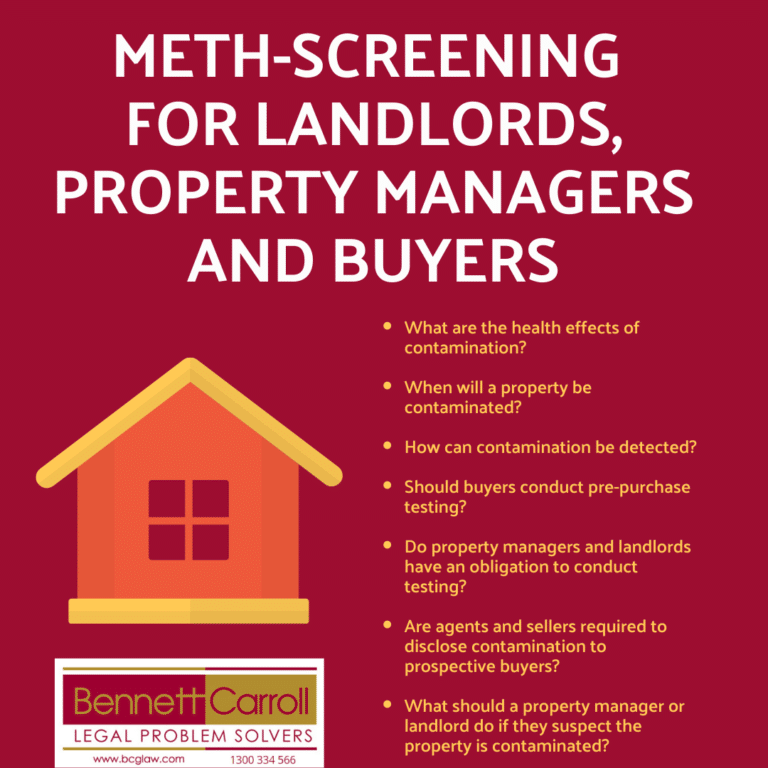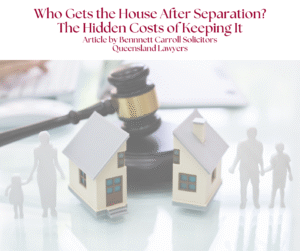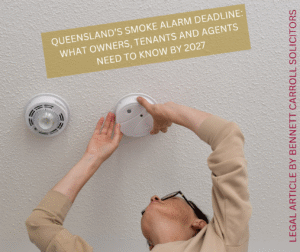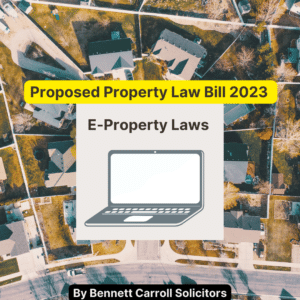When purchasing a home, pre-purchase building and pest inspections are the norm for diligent buyers.
What is usually not considered is whether the property is contaminated by illicit substances. According to the drug-testing company Meth Screen, approximately 35% of Queensland properties test positive for illicit drug contamination.
What are the health effects of contamination?
Methylamphetamine contamination occurs as a result of regular meth use or proximity to meth labs. It leaves a chemical residue that is absorbed into walls, floors, drains, ducting, furnishings or fittings. According to the Queensland Government, contamination can remain in a property’s structure for many years.
The health risks associated with contamination include respiratory problems, skin conditions, throat irritation, headaches, irritability and increased susceptibility to illness. Children can also experience behaviour problems and sleeping issues.
Prolonged exposure can also cause cardiovascular effects including, increased heart rate, blood pressure, chest pain and the risk of stroke. Additionally, exposure to meth manufacturing chemicals is associated with chronic health issues and cancer.
When will a property be contaminated?
The Australian Government’s Clandestine Drug Laboratory Remediation Guidelines states that the presence of methylamphetamine on surfaces at a level that exceeds 0.5 micrograms per 100cm2 is unsafe.
Under section 27A(1)(a) of the Public Health Regulation 2018 (Qld) a place where a dangerous drug has or may have been unlawfully produced, such as a meth lab, is considered a public health risk under the Public Health Act 2005 (Qld).
How can contamination be detected?
Detection of contamination is difficult as the residue is invisible and odourless. To determine whether a property is contaminated samples from the property must be taken and tested.
However, signs that the property has been used to produce meth can include:
- unusual chemical smells;
- the presence of chemical containers;
- glass equipment and cookware;
- plastic or glass containers with tubing;
- chemical stains;
- portable gas tanks;
- the removal of light bulbs; and
- disabled smoke detectors.
Should buyers conduct pre-purchase testing?
Aside from the significant health risks associated with contamination, removal of the contamination is costly. The costs range from at least $15,000.00 to upwards of $30,000.00 for treating or removing carpet, wall linings, curtains, electrical wiring, heating, insulation or air conditioners.
Do property managers and landlords have an obligation to conduct testing?
Under section 185(2)(b) Residential Tenancies and Rooming Accommodation Act 2008 (Qld) landlords must ensure that premises are fit for the tenant to live in at the start of the tenancy. The legislation is drafted quite broadly and would extend to taking any reasonable steps to ensure the property is fit for habitation. Whether a landlord or property manager breaches the legislation by leasing any property (even where there is no suspicion of prior illicit substance use) without taking steps to ensure the premises are free from harmful contaminants is unclear, having not been tested by a Court, however it would almost certainly be a breach if the landlord or property manager suspected the property could be contaminated but did nothing to test or remedy the contamination.
Landlords and property managers also owe a duty of care to tenants. They must take reasonable care to avoid foreseeable harm to tenants or others entering the property. This includes performing repairs promptly and arranging for regular building inspections.
Failure of the landlord or property manager to conduct contamination testing, if it later results in damage or injury to a tenant or visitor, will undoubtedly expose the landlord and property manager to liability and litigation.
Are agents and sellers required to disclose contamination to prospective buyers?
There is no express legislation requiring agents to disclose contamination to buyers, but such an obligation can be inferred from other sources of law.
The Australian Consumer Law provides that real estate agents and sellers must not engage in misleading or deceptive conduct. Silence can constitute misleading or deceptive conduct, where in all the circumstances, it is likely to mislead or deceive.
Real estate agents must disclose any information which may reasonably affect a buyer’s decision to purchase a property. It is likely that contamination would reasonably affect a buyer’s decision to purchase a property, given the costs to remedy the contamination and the history of the property.
If an agent breaches this obligation, the contract may be rescinded (i.e. cancelled) and damages may be sought against the agent and seller.
What should a property manager or landlord do if they suspect the property is contaminated?
If a property manager believes a tenant is engaging in illegal activities within a property then they should immediately notify Police.
Landlords and property managers would do well to:
- conduct regular testing in the leased premises; and
- conduct testing at the end of tenancies before new tenants arrive.
Landlords should also check whether their insurance covers them in the event drug contamination is discovered.
To discuss your matter please feel free to contact one of our experts today. We have offices located in Brisbane, the Gold Coast and the Sunshine Coast.
Call us on or email and safeguard your interests every step of the way- We are your legal problem solvers.







